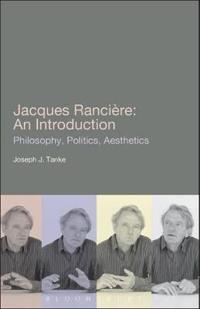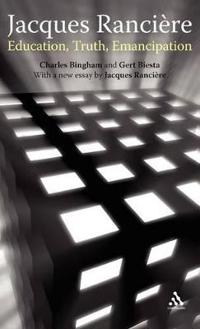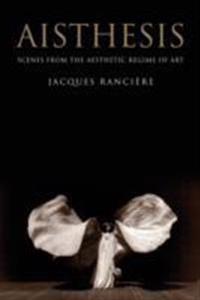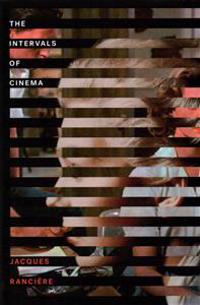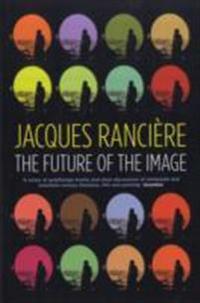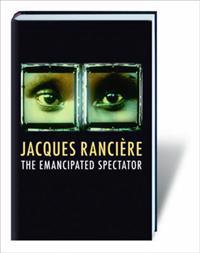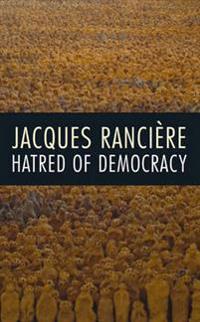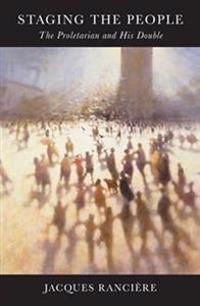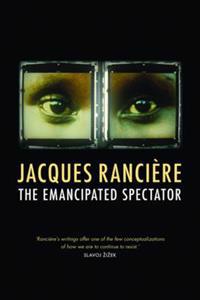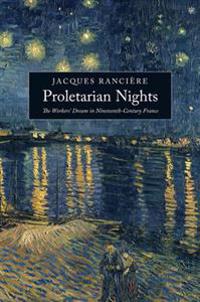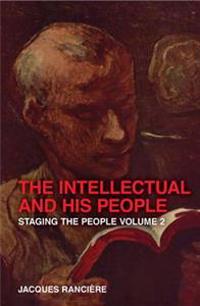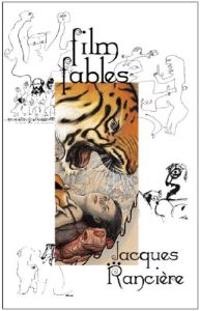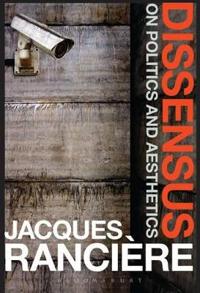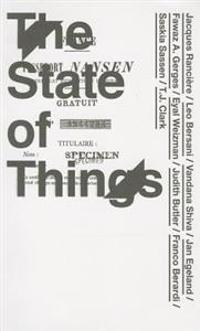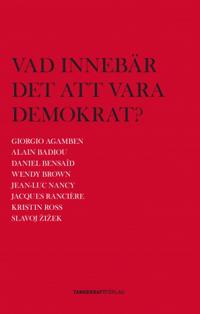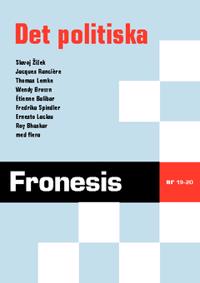Jacques Ranciere: An Introduction (Häftad)
avJoseph J. Tanke
ISBN: 9781441152084 - UTGIVEN: 201104The first comprehensive introduction to one of the most influential French thinkers writing today, exploring Ranciere's ideas on philosophy, aesthetics, and politics. "Jacques Ranciere: An Introduction" offers the first comprehensive introduction to the thought of one of today's most important and i[...]
Jacques Ranciere: An Introduction (Inbunden)
avJoseph J. Tanke
ISBN: 9781441167705 - UTGIVEN: 2011-04-14The first comprehensive introduction to one of the most influential French thinkers writing today, exploring Rancires ideas on philosophy, aesthetics and politics.[...]
Jacques Ranciere (Inbunden)
avCharles Bingham, Gert J. J. Biesta
ISBN: 9781441190956 - UTGIVEN: 201008This book demonstrates the importance of Ranciere's educational thought and how educational theory needs to be informed by his philosophical project. "Jacques Ranciere: Education, Truth, Emancipation" demonstrates the importance of Ranciere's work for educational theory, and in turn, it shows just h[...]
Jacques Ranciere: An Introduction
ISBN: 9781441194732 - UTGIVEN: 2015-06Jacques Ranci re: An Introduction offers the first comprehensive introduction to the thought of one of today's most important and influential theorists. Joseph Tanke situates Ranci re's distinctive approach against the backdrop of Continental philosophy and extends his insights into current discussi[...]
The Politics of Aesthetics (Pocket)
avJacques Ranciere
ISBN: 9781780935355 - UTGIVEN: 2013-06-27In this influential sequence of linked interviews, Ranciere explores the interplay of art and politics.[...]
Aisthesis (Inbunden)
avJacques Ranciere
ISBN: 9781781680896 - UTGIVEN: 201305Composed in a series of scenes, Aisthesis - Rancie`re's definitive statement on the aesthetic - takes its reader from Dresden in 1764 to New York in 1941. Along the way, we view the Belvedere Torso with Winckelmann, accompany Hegel to the museum and Mallarme´ to the Folies-Berge`re, attend a lectur[...]
The Intervals of Cinema (Häftad)
avJacques Ranciere
ISBN: 9781781686065 - UTGIVEN: 2014-09The cinema, like language, can be said to exist as a system of differences and in his latest book the acclaimed philosopher Jacques Ranciere relates cinema to literature and theatre. With literature, he argues, cinema takes its narrative conventions, while at the same time effacing its images and it[...]
Jacques Ranciere (Häftad)
ISBN: 9781844652334 - UTGIVEN: 201007Although relatively unknown a decade ago, the work of Jacques Ranciere is fast becoming a central reference in the humanities and social sciences. His thinking brings a fresh, innovative approach to many fields, notably the study of work, education, politics, literature, film, art, as well as philos[...]
The Future of the Image (Häftad)
avJacques Ranciere
ISBN: 9781844672974 - UTGIVEN: 200811In "The Future of the Image", Jacques Ranciere develops a fascinating new concept of the image in contemporary art, showing how art and politics have always been intrinsically intertwined. Covering a range of art movements, and thinkers such as Foucault, Deleuze, Adorno, Barthes, Lyotard and Greenbe[...]
The Emancipated Spectator (Inbunden)
avJacques Ranciere
ISBN: 9781844673438 - UTGIVEN: 200908In this title, the foremost philosopher of art argues for a new politics of seeing. The role of the viewer in art and film theory revolves around a theatrical concept of the spectacle. The masses subjected to the society of spectacle have traditionally been seen as aesthetically and politically pass[...]
Hatred of Democracy (Häftad)
avJacques Ranciere
ISBN: 9781844673865 - UTGIVEN: 200907This title offers a vehement defense of the principle of democracy against neoconservative repression. Jacques Ranciere argues that the West can no longer simply extol the virtues of democracy by contrasting it with the horrors of totalitarianism. As certain governments are exporting democracy by br[...]
On the Shores of Politics (Häftad)
avJacques Ranciere
ISBN: 9781844675777 - UTGIVEN: 200612It is frequently said that we are living through the end of politics, the end of social upheavals, the end of utopian folly. Consensual realism is the order of the day. But political realists, remarks Jacques Ranciere, are always several steps behind reality, and the only thing which may come to an [...]
Staging the People (Häftad)
avJacques Ranciere
ISBN: 9781844676972 - UTGIVEN: 201106These essays from the 1970s mark the inception of the distinctive project that Jacques Ranciere has pursued across forty years, with four interwoven themes: the study of working-class identity, of its philosophical interpretation, of hereticalA" knowledge and of the relationship between work and le[...]
The Emancipated Spectator (Häftad)
avJacques Ranciere
ISBN: 9781844677610 - UTGIVEN: 201109The theorists of art and film commonly depict the modern audience as aesthetically and politically passive. In response, both artists and thinkers have sought to transform the spectator into an active agent and the spectacle into a communal performance. In this follow-up to the acclaimed The Future [...]
Proletarian Nights (Häftad)
avJacques Ranciere
ISBN: 9781844677788 - UTGIVEN: 201204Proletarian Nights, one of Ranciere's most significant works, dramatically reinterprets the Revolution of 1830, contending that workers were not rebelling against specific hardships and conditions but against the unyielding predetermination of their lives. Through a study of worker-run newspapers, l[...]
The Intellectual and His People (Häftad)
avJacques Ranciere
ISBN: 9781844678600 - UTGIVEN: 201205Following the previous volume of essays by Jacques Ranciere from the 1970s, Staging the People: The Proletarian and His Double, this second collection focuses on the ways in which radical philosophers understand the people they profess to speak for. The Intellectual and His People engages in an inci[...]
Film Fables (Inbunden)
avJacques Ranciere
ISBN: 9781845201678 - UTGIVEN: 200602Film Fables traces the history of modern cinema. Encyclopedic in scope, Film Fables is that rare work that manages to combine extraordinary breadth and analysis with a lyricism which attests time and again to a love of cinema. Jacques Ranciere moves effortlessly from Eisenstein's and Murnau's transi[...]
Film Fables (Pocket)
avJacques Ranciere
ISBN: 9781845201685 - UTGIVEN: 2006-02-01Tracing the history of modern cinema, this book shows us how, between its images and its stories, the cinema tells its truth.[...]
Dissensus (Inbunden)
avJacques Ranciere
ISBN: 9781847064455 - UTGIVEN: 200912This is a brand new collection of Jacques Ranciere's writings on art and politics. "Dissensus: On Politics and Aesthetics" brings together some of Jacques Ranciere's most recent writings on art and politics to show the critical potential of two of his most important concepts: the aesthetics of polit[...]
Vad innebär det att vara demokrat? (Kartonnage)
avSlavoj Zizek, Giorgio Agamben, Jacques Ranciere, Wendy Brown
ISBN: 9789186273040 - UTGIVEN: 201011Finns det någon mening med att kalla sig "demokrat" i en samtid där praktiskt taget alla kallar sig demokrater? Kan ett begrepp som tycks kunna betyda både allt och inget fortfarande ha ett meningsfullt politiskt innehåll?
I föreliggande bok åtar sig några av vår tids mest namnku[...]Fronesis 19-20 Det politiska (Tidskrift)
avWendy Brown, Slavoj Zizek, Jacques Ranciere
ISBN: 9789197747905 - UTGIVEN: 201101Det talas i dag om politikens död. Tron på en kollektiv politisk befrielse har ersatts av individuella livsstilar och riskhantering. Det som en gång sades vara politikens förlängning, kriget, blivit det ord som i stället för politik ska uttrycka kollektiv handlingskraft. Men om politiken i da[...]

